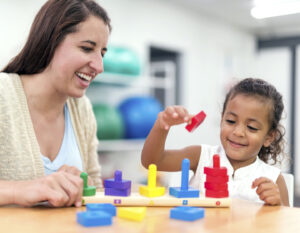

Communicating with your domestic helper is key
We’re back with our series about raising kids with a helper’s assistance. In case you missed our first article, Melanie Leung-Shea from Helpwise shared advice on defining our helper’s role in our children’s lives. In today’s article, Melanie will address some of those tricky subjects such as clarifying responsibilities and handling discipline. Whether you have a helper or know someone who does, we think you’ll find some useful nuggets to use (or share!).


Before we dive in, let’s recognise (and appreciate!) our different parenting styles and the ways we manage our helpers. This is not an effort to convince you in or out of any of the decisions that you’ve made for your family. In fact, I’m here to encourage you to share those preferences with your domestic helper so that she can be on the same page as you.
How to Double Your Parenting Efforts
Most parents want to be one of the main voices in their children’s lives, but given our busy lifestyles, many families find themselves needing to temporarily delegate some guidance to other adults. We see this in the case of teachers, grandparents, coaches, youth leaders, and tutors. While we wouldn’t entrust the full responsibility of raising our children to them, we often give permission for them to watch over our children for certain spans of time.
Since our helpers spend a lot of time with our children, we have the opportunity to “double” our parenting efforts if we train our helpers to not just “watch“ our children but to echo our parenting standards. Without this teamwork dynamic, you may have one party doing all of the enforcing and the other party doing all of the spoiling. Parents who choose to leverage their helpers by including them in the goals of their parenting will give their children the gift of consistency and reduce the number of conflicts that occur when helpers are left to guess how to guide the children.
Responsibilities: who should carry the backpack?
Many of us want our children to be independent and responsible members of society; yet, having live-in help often eliminates opportunities that kids once had to acquire practical life skills at home.
The age that you would like your child to start learning how to bathe themselves, carry their own backpack, or cook a meal is going to be different for each family, and most likely for each child as well. The important thing is communicating those preferences and goals to your helper.


Consider these responsibility preferences and then communicate them to your helper:
- What duties do I want to be my helper’s responsibility, and what should be my children’s responsibility (e.g. putting away shoes, packing backpacks, etc.)?
- What age-appropriate chores do I want my children to start learning (e.g. sweeping, dusting, making the bed, setting the table, etc.) ?
- Which of these chores and responsibilities would I like to teach my children, and which ones would I like my helper to teach them?
Discipline: should my helper get involved?
If we leave our helpers without any guidance on how to address our children’s behaviour, we have done our helpers and our kids a great disservice. Over time, children may discover that the helper has little authority and may start taking advantage of that; or, the helper may find herself tempted to deal with the children’s misbehaviour in ways that we wouldn’t agree with. Instead, we can equip our helpers with appropriate methods or consequences that can help them to steer clear of harmful disciplinary actions or indulgent coddling.
Consider your discipline preferences and then communicate them to your helper:
- What specific behavioural issues are you currently working on with your children? Are your children and your helper aware of which areas you’d like each child to grow in (e.g. holding hands as they cross the road, doing their homework right away when they get home from school)?
- Which of your kids’ requests would you like to grant your helper the permission to say, “no” to (e.g. their requests for their backpack to be carried, or demands for treats, etc.)? Make sure that everyone in the house “knows the nos”.
- Which behavioural issues should the helper address with reminders (“don’t forget to say ‘please'”), and which issues are serious enough that you would you like her to call you about?
There is no “one way” to guide our helpers and teach our children, and some of these habits may take some time to form before you start seeing results. But the important thing is to just incorporate your helper into whatever parenting standards and preferences you have, even if you need to adjust them over time. With some thoughtful reflection and clear instructions, your entire household has the potential to benefit from the stability that comes from synchronising your efforts.
 View All
View All











 View All
View All





 View All
View All


 View All
View All









